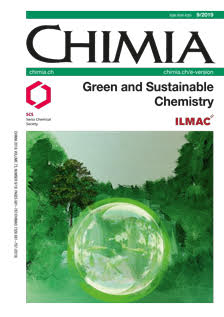Enzymatic PET Degradation
DOI:
https://doi.org/10.2533/chimia.2019.743PMID:
31514776Keywords:
Biocatalysis, Biodegradation, Enzyme engineering, Plastic recycling, PetAbstract
Plastic, in the form of packaging material, disposables, clothing and other articles with a short lifespan, has become an indispensable part of our everyday life. The increased production and use of plastic, however, accelerates the accumulation of plastic waste and poses an increasing burden on the environment with negative effects on biodiversity and human health. PET, a common thermoplastic, is recycled in many countries via thermal, mechanical and chemical means. Recently, several enzymes have been identified capable of degrading this recalcitrant plastic, opening possibilities for the biological recycling of the omnipresent material. In this review, we analyze the current knowledge of enzymatic PET degradation and discuss advances in improving the involved enzymes via protein engineering. Looking forward, the use of plastic degrading enzymes may facilitate sustainable plastic waste management and become an important tool for the realization of a circular plastic economy.Downloads
Published
2019-09-18
Issue
Section
Scientific Articles
License
Copyright (c) 2019 Swiss Chemical Society

This work is licensed under a Creative Commons Attribution-NonCommercial 4.0 International License.
How to Cite
[1]
Chimia 2019, 73, 743, DOI: 10.2533/chimia.2019.743.







